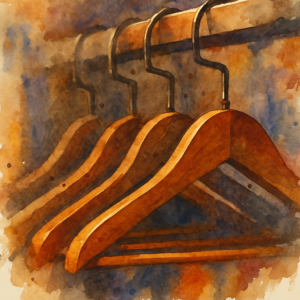Improve your ear for French with this clip from the Balades podcast. 37 words in 12 seconds, how many can you hear and understand?
Start quiz, type what you hear, then join the conversation.
Did you find this one challenging or easy? Did you hear something diffferent? What surprised you? What levels did you complete? Comment below and share what’s opening up for you with this quiz.
This clip is from Balades Episode 3. Listen and fill in what you hear below. Read more and find a translation below. Find the full podcast here.
Press play and take the transcription quiz to practice your French listening comprehension.
(You can use the ⋮ to adjust playback speed)
The above audio sample and transcription is from Balades ep. 3. We do not own the content. Listen to the entire episode here.
chat happily
If you have feedback about the site, I’d be happy to chat, and chat happily I would! How are you finding it? I like this expression and wanted to highlight it.
I also think “sent” is an interesting one. It’s a verb for having the smell of. Maybe English only has “wreaks” and not quite the same meaning as “sent” it seems.
It’s also interesting to me that she says “habitent la région” without a preposition. For some reason I thought a preposition (dans, en) was required. Maybe not…? or maybe it’s just a quicker way of speaking. What do you hear?
If you’re just joining us as a beginner, I recommend you start with the first episode of Balades and work forward. Follow along daily for new clips.
How did you find today’s clip compared to yesterday’s clip? I tend to be most comfortable when the clip is around 150wpm. This clip, despite 37 words, is a bit slower.
The Balades podcast continues to be, in my opinion, the best choice for beginners learning French. I love it for myself, at A1-A2 level of French. Hopefully you’re enjoying these clips too. Even when there’s a fast clip, it’s still manageable. The right amount of challenge. What do you think? Join us for the next quiz.
How are you finding these shorter snippets? I’m open to any and all feedback, as always. Let me know.
The snippet in English
Find a translation of this snippet here, how much of this did you hear?
Elles se connaissent toutes et bavardent allègrement. « Regardez, Jeannine, j’ai trouvé de magnifiques tomates, et ce basilic… J’en mettrai dans ma soupe au pistou. » En effet, tout le minibus sent une bonne odeur de basilic.
They all know each other and chat happily. “Look, Jeannine, I found some beautiful tomatoes, and this basil… I’ll put it in my soup with pesto.” Indeed, the whole minibus smells of basil.
The above translation from Deepl. Source
What does “bavardent” mean?
“Bavardent” is the third person plural present tense form of the French verb “bavarder,” which translates to “chat” or “talk” in English. It means “they chat” or “they talk.”
Usage and Context:
- Casual Conversation: Used to describe a group of people engaging in light, informal conversation.
- Example: “Les élèves bavardent avant le début du cours.” (The students chat before the start of the class.)
- General Talkativeness: Can also refer to the general act of talking or being talkative.
- Example: “Ils bavardent toujours pendant les réunions.” (They always talk during meetings.)
Grammatical Structure:
- “Bavardent”: Conjugation for “ils” or “elles” (they) in the present tense.
Cultural Notes:
- In French culture, as in many others, casual conversation or “bavardage” is an integral part of social interaction. “Bavardent” is often used to depict a friendly, relaxed atmosphere where people are engaging in light conversation.
In Summary:
“Bavardent” means “they chat” or “they talk” in French, and it’s used to describe a group of people engaged in informal conversation. It can be used in a variety of contexts to denote casual talk or general talkativeness, reflecting the importance of conversation in social settings.
What does “allègrement” mean?
“Allègrement” is a French adverb that translates to “cheerfully,” “lightheartedly,” or “blithely” in English. It is used to describe an action done in a cheerful, happy, or carefree manner.
Usage and Context:
- Conveying Cheerfulness or Ease: Indicates that something is done with a sense of joy, ease, or without worry.
- Example: “Il répond allègrement aux questions.” (He answers the questions cheerfully.)
- Depicting a Carefree Attitude: Often used to describe actions done without much concern or deep seriousness.
- Example: “Elle traverse la vie allègrement.” (She goes through life lightheartedly.)
Grammatical Structure:
- Adverbial Use: “Allègrement” modifies verbs to describe the manner in which the action is performed.
Cultural Notes:
- The use of “allègrement” often reflects a value placed on positivity and a light-hearted approach to life, a common theme in French literature and cultural expressions.
In Summary:
“Allègrement” means “cheerfully,” “lightheartedly,” or “blithely” in French. It’s used to describe actions done in a happy, carefree, or effortless manner. The word is typically used as an adverb to modify verbs, indicating a cheerful or easygoing approach to actions or life situations.
What does “pistou” mean?
“Pistou” is a term in French cuisine that refers to a sauce made from garlic, fresh basil, and olive oil. It is similar to the Italian pesto, though it typically does not include pine nuts or cheese.
Usage and Context:
- Culinary Use: Used as a condiment or sauce in various dishes.
- Example: It’s often served with pasta or added to soups like “soupe au pistou,” a vegetable soup popular in Provence, France.
- Regional Cuisine: Particularly associated with the Provence region in the South of France.
Ingredients and Preparation:
- Primary Ingredients: Garlic, fresh basil, and olive oil are crushed or blended together to make pistou.
- Variations: Some versions may include grated cheese like Parmesan or pecorino, though traditional pistou typically does not.
Cultural Notes:
- Pistou is a staple of Provençal cuisine and reflects the Mediterranean influences in the region, emphasizing fresh, local ingredients.
- It’s particularly beloved in the summertime when basil is abundant.
This clip is from the Balades podcast
“Balades” is a great podcast for those new to French. Its slow pace and clear speech make it easy to follow and understand. The episodes are fun and cover a variety of topics, ideal for beginners. While designed for learners, the podcast stays in French, offering a full-dive into the language. It’s part of a wider group of French podcasts aimed at all levels, focusing on real-life use rather than just vocab and grammar. Regular listening, along with tools like transcripts and quizzes, helps boost understanding and speaking skills. “Balades” is a top pick for anyone starting their French learning journey.
Improving your French Listening Comprehension with Podcasts
On this site, fast spoken French is finally accessible to all levels. The tool break podcasts into short clips each set to transcription fill-in-the-blank practice. My favorite practice in class is always dictées. While they can seem overwhelming at first, the confidence boost and skills payoff for doing the work pays off. They’re perfect for anyone at any level, from advanced students to those just starting.
We use podcasts and our practice exercises to make it possible for anyone, anywhere to immerse in French with fun and ease. Join us and enjoy French, one short clip at a time. Let’s learn together!
Make the most of the site:
- Daily Podcast Listening: Start your day with a French podcast from our collection. Choose episodes that align with your interests to keep it engaging.
- Active Listening Practice: As you listen, try to pick out key phrases and vocabulary. Use our daily quizzes to test your understanding and reinforce learning.
- Repeat and Shadow: Listen to the same podcast segment multiple times. Try to mimic the pronunciation and intonation to improve your spoken French.
- Note-taking: Jot down new words or phrases you encounter. Review these notes regularly to enhance vocabulary retention.
- Reflect and Respond: After each episode, summarize the main points in French, either in writing or aloud. This helps in consolidating your learning and improving your expressive skills.
- Read More:
- True Beginner or A1 Learners: discover tips learning with podcasts at an introductory level.
- Discover all the podcast clips on FrenchIRL organized by level.
- Top Tips: Here’s how I make the most of my own site.
I created the French In Real Life project because I wanted to understand more than just my teacher and youtubers who cater to learners. I wanted to understand the French I hear in France. I hope you can benefit as much as I have. Become a supporting member for access to all clips.
What did you love about this?
Comment below with your feedback! Tells us what you think. Send a note or leave a comment below. We appreciate the feedback. Also, we’re always looking for partners to build this site and grow the content available.
 Kids Songs
Kids Songs 







